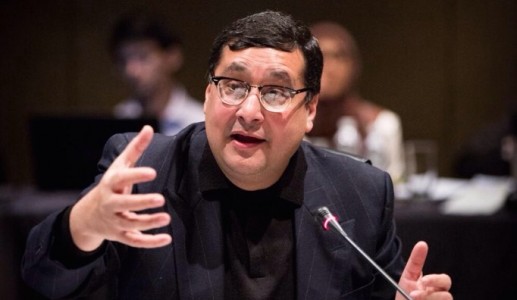Najam Speaks at Harvard Panel on Technology and Climate Change
Adil Najam, Dean of the Frederick S. Pardee School of Global Studies at Boston University, spoke as part of a workshop at the Harvard Kennedy School on December 5, 2017 that focused on the politics of science and technology in the face of climate change.
The panel also featured Sheila Jasanoff, Pforzheimer Professor of Science and Technology Studies at the Kennedy School; Janelle Knox-Hayes, Associate Professor of Planning and Economic Geography at MIT; and Noelle Selin, Associate Professor of Earth, Atmospheric, and Planetary Sciences and Associate Director of the Technology and Policy Program at MIT. The discussion was moderated by Gregg Macey, Professor of Law at Brooklyn Law School and Visiting Research Fellow with Harvard’s Program on Science, Technology and Society.
“While there have been science advances in the climate world, I am not convinced that they have always made improvements,” Najam said. “Humility has been the casualty in how a renewed faith in science and technology will help us solve climate change.”
Najam said innovations made in science and technology can create a false sense that one can meaningfully combat climate change without making any significant lifestyle changes.
“Tesla with mobility and renewables with energy are giving us the false sense that shiny new technology will solve all the problems of climate change without us having to make any major lifestyle changes,” Najam said.
Adil Najam is the inaugural dean of the Frederick S. Pardee School of Global Studies at Boston University and professor of International Relations and Earth & Environment. Earlier, he served as vice chancellor of Lahore University of Management Sciences (LUMS), in Lahore, Pakistan, and as the director of BU’s Frederick S. Pardee Center for the Study of the Longer-Range Future. He has also taught at MIT and at the Tufts University Fletcher School of Law and Diplomacy. His research focuses on issues of global governance and global public policy, including those related to diplomacy, climate change, South Asia, Muslim countries, and human development.
